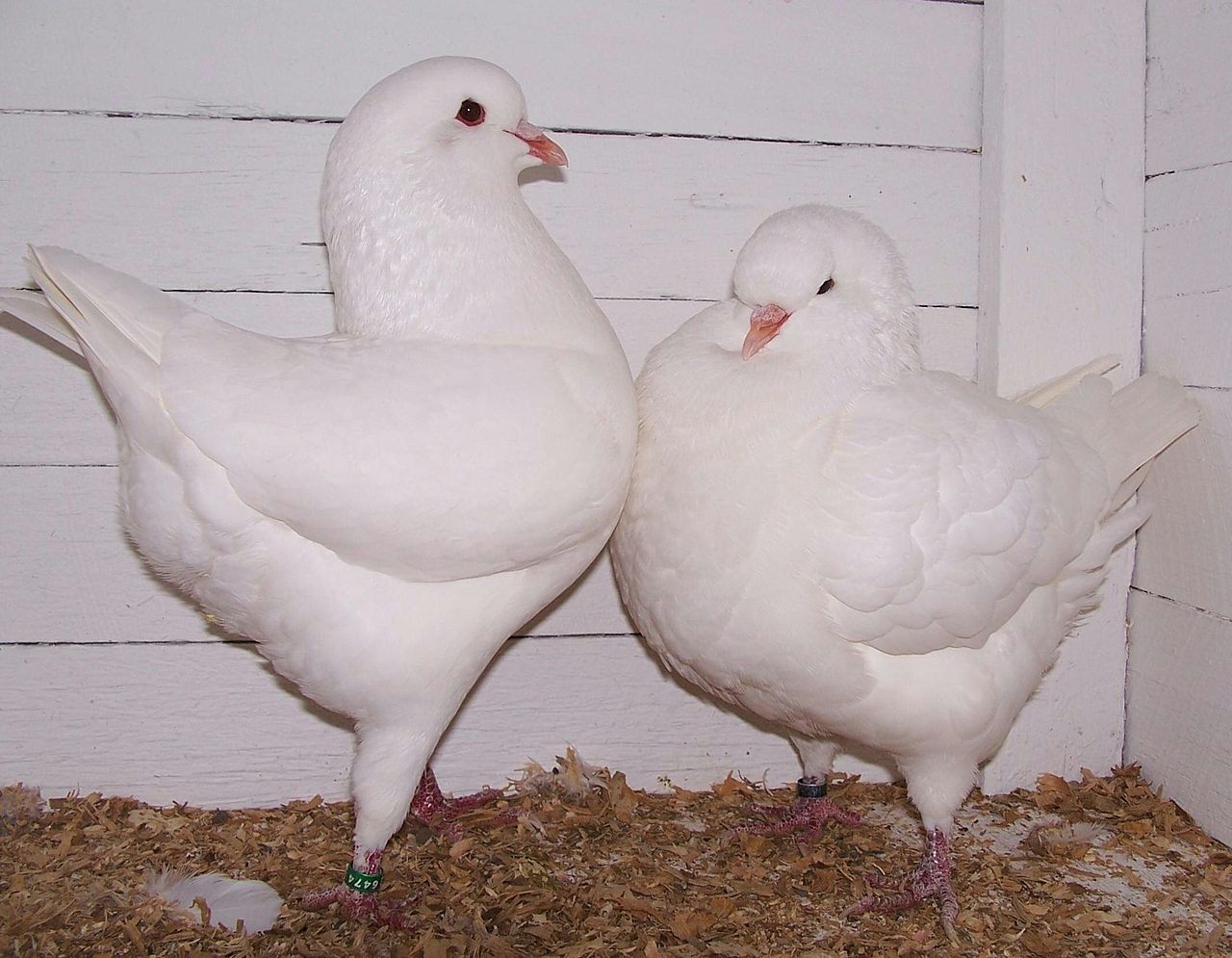 |
| Photo Source: Wikipedia.org |
King Pigeons, also known as Rock Pigeons or Feral Pigeons, are a domesticated species of pigeon that are descended from the wild Rock Pigeon, which is native to Europe, North Africa, and Western Asia. King Pigeons are one of the largest breeds of domesticated pigeons and are well known for their calm and gentle demeanor.
In terms of appearance, King Pigeons have a large, round body, a short neck, and a broad, rounded tail. They have a distinctive appearance, with their iridescent neck feathers and their white rump contrasting with their blue-gray body feathers. They have red feet and beaks, and their eyes are usually bright orange or red.
King Pigeons are often kept as pets and are prized for their beauty, intelligence, and affectionate nature. They are also used in the racing pigeon sport, where they are trained to fly long distances and return to their home loft as quickly as possible.
In addition to their use as pets and in racing, King Pigeons have also been used in a variety of other ways throughout history. For example, they have been used as messenger pigeons during wars, to carry messages over long distances, and as homing pigeons in search and rescue operations.
Despite their popularity, King Pigeons are considered to be a nuisance in some urban areas, where they are known to roost in large numbers and cause damage to buildings and other structures. In these areas, control measures, such as trapping and removal, may be necessary to manage their populations.
